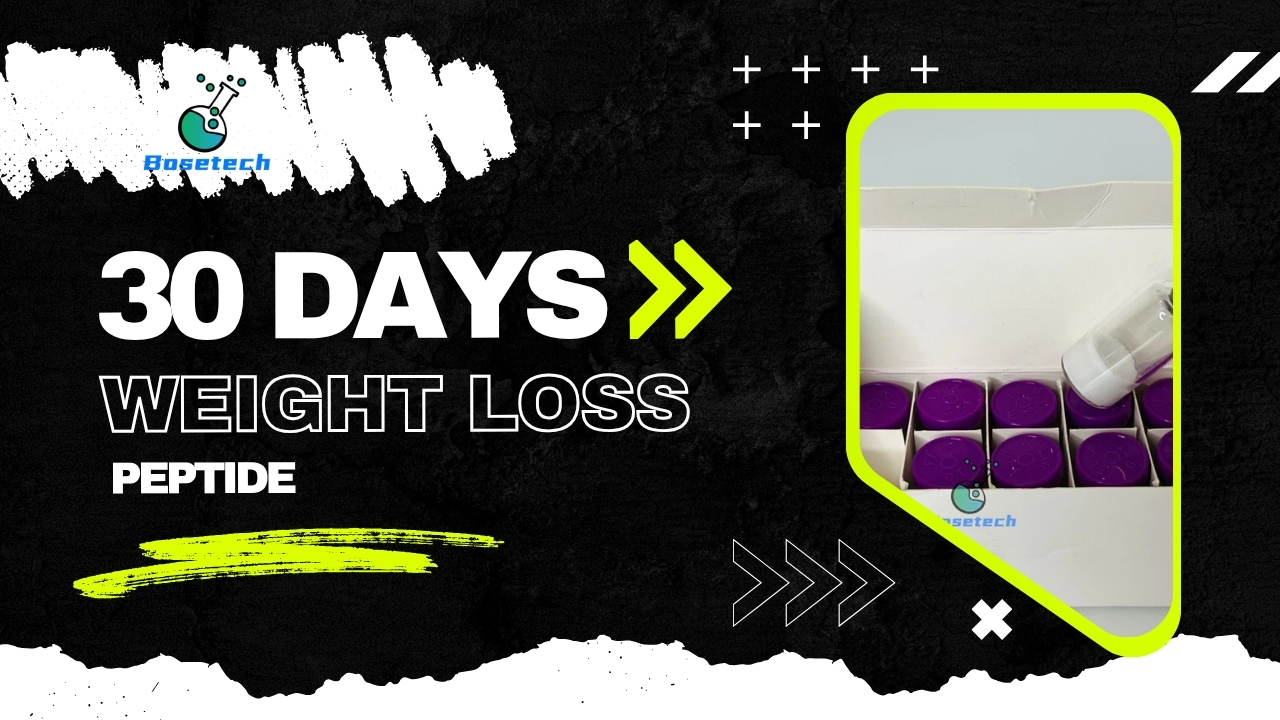The world of weight management has evolved far beyond diet and exercise. While calorie control and physical activity remain the foundation of weight loss, science has unlocked new tools to accelerate fat burning and improve metabolism — one of which is weight loss peptides.
Peptides are short chains of amino acids that act as signaling molecules in the body, influencing various biological functions. In the context of weight management, certain peptides help regulate appetite, fat metabolism, and energy expenditure, making them powerful allies for individuals struggling with obesity or slow metabolism.
In this article, we’ll break down what weight loss peptide are, how they work, their benefits, potential risks, and the most researched types.
What Are Weight Loss Peptides?
Peptides are essentially small proteins made of 2 to 50 amino acids. They occur naturally in the body and play roles in hormone regulation, tissue repair, and metabolism.
Weight loss peptides are specific peptides that influence hunger hormones, fat oxidation, and energy usage to promote fat reduction. They can be naturally produced in the body, synthetically made in labs, or derived from food sources.
Examples of natural peptides that affect weight include:
-
GLP-1 (Glucagon-Like Peptide-1) – Regulates blood sugar and reduces appetite.
-
GHRP (Growth Hormone Releasing Peptides) – Stimulates growth hormone for better fat burning.
-
CJC-1295 & Ipamorelin – Boost growth hormone production for muscle retention and fat loss.
How Weight Loss Peptides Work
Peptides for weight loss primarily function by:
-
Suppressing Appetite
Many peptides influence hormones like ghrelin and leptin, which control hunger signals, helping reduce calorie intake naturally. -
Boosting Fat Metabolism
Certain peptides increase lipolysis (the breakdown of stored fat) and encourage the body to use fat for fuel rather than carbohydrates. -
Improving Insulin Sensitivity
By enhancing insulin efficiency, peptides help reduce fat storage and maintain stable blood sugar levels. -
Increasing Lean Muscle Mass
Growth hormone-related peptides encourage muscle building, which in turn raises the basal metabolic rate (BMR). -
Enhancing Energy Expenditure
Peptides can increase thermogenesis — the process of heat production in the body — leading to more calories burned at rest.
Popular Weight Loss Peptides and Their Functions
Here are the most studied and commonly used peptides for weight management:
1. Semaglutide (GLP-1 Agonist)
-
Function: Mimics GLP-1 hormone, slows digestion, and reduces appetite.
-
Benefit: Clinically shown to promote 10–15% body weight loss in overweight individuals.
-
Note: FDA-approved for weight loss under brand names like Wegovy.
2. Tirzepatide
-
Function: Dual agonist of GLP-1 and GIP, improving appetite control and blood sugar.
-
Benefit: Significant fat reduction and better metabolic health.
3. CJC-1295 + Ipamorelin
-
Function: Stimulates growth hormone release, enhancing fat loss and muscle gain.
-
Benefit: Supports body recomposition without extreme dieting.
4. Tesamorelin
-
Function: Increases growth hormone levels, targeting visceral fat.
-
Benefit: Effective for reducing belly fat, especially in metabolic disorders.
5. AOD-9604 (Anti-Obesity Peptide)
-
Function: Derived from human growth hormone but targets fat breakdown specifically.
-
Benefit: Burns fat without raising blood sugar or affecting muscle tissue.
Benefits of Weight Loss Peptides
-
Effective Appetite Suppression – Helps control overeating naturally.
-
Sustainable Fat Loss – Encourages long-term weight management without crash diets.
-
Muscle Preservation – Maintains lean muscle mass while losing fat.
-
Metabolic Boost – Increases daily calorie burn even at rest.
-
Better Hormonal Balance – Supports healthy insulin, cortisol, and growth hormone levels.
-
Improved Energy and Mood – Stabilized blood sugar leads to fewer energy crashes.
Potential Risks and Side Effects
Like any medical treatment, weight loss peptides carry potential risks. Common side effects include:
-
Nausea and gastrointestinal discomfort (especially with GLP-1 agonists)
-
Headaches and dizziness
-
Water retention or joint pain (growth hormone peptides)
-
Hypoglycemia (low blood sugar) if combined with other glucose-lowering drugs
-
Possible allergic reactions to injections
Important: Peptides should only be used under the guidance of a qualified healthcare provider.
Who Should Consider Weight Loss Peptides?
These treatments may be suitable for:
-
People with obesity (BMI ≥ 30) or overweight with health risks
-
Those who have tried diet and exercise without success
-
Individuals with insulin resistance, metabolic syndrome, or hormonal imbalances
-
Patients needing help maintaining weight loss after bariatric surgery
How to Use Weight Loss Peptides Safely
-
Medical Evaluation First – Get lab tests and a full health check.
-
Follow Prescribed Dosages – Overuse can lead to adverse effects.
-
Combine with Healthy Lifestyle – Peptides work best alongside a balanced diet and regular activity.
-
Monitor Progress and Side Effects – Regular follow-ups are key.
-
Avoid Unregulated Sources – Only use pharmacy-grade peptides.
The Future of Peptides in Weight Management
Research into peptides is growing rapidly, with potential next-generation weight loss peptides combining fat-burning, muscle-building, and metabolic-enhancing effects in one treatment. Personalized peptide therapy, based on genetic and metabolic profiling, could revolutionize obesity treatment in the next decade.
Conclusion
Weight loss peptides are not a magic bullet — but they are a powerful scientific tool for those struggling with stubborn fat and slow metabolism. By regulating appetite, boosting metabolism, and supporting muscle retention, they offer a holistic approach to weight management when used under medical supervision.
When combined with a healthy lifestyle, peptides can deliver sustainable, long-term results that go far beyond quick fixes.

